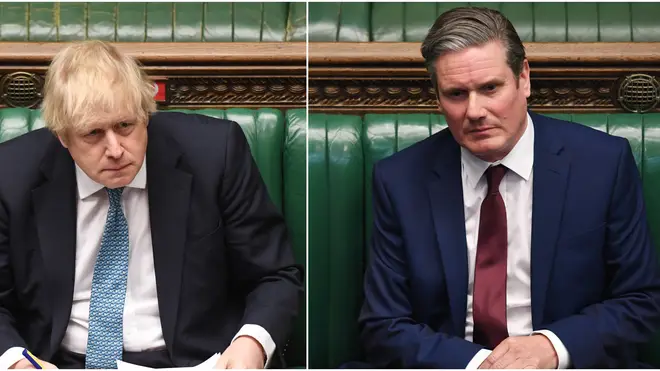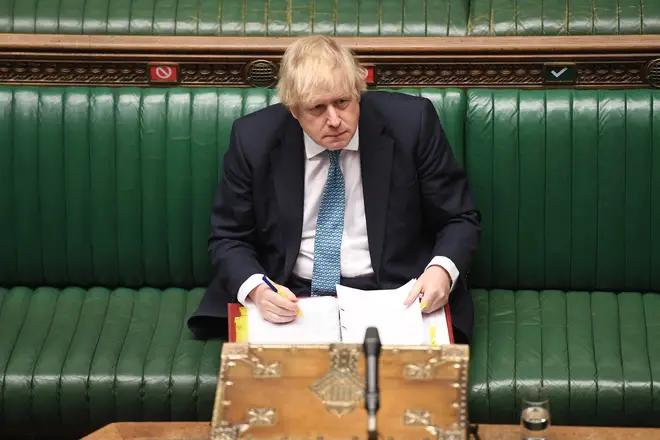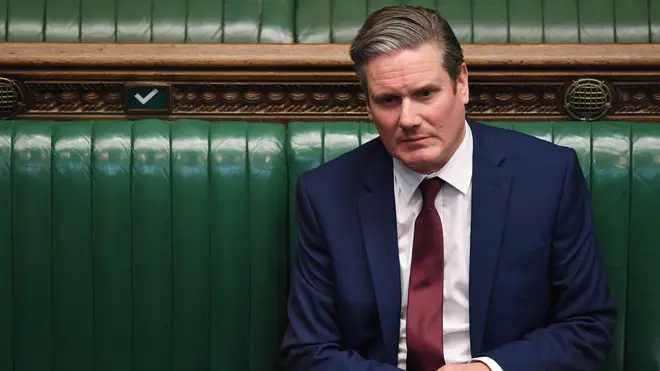
James O'Brien 10am - 1pm
13 May 2020, 20:15

Keir Starmer’s first outings at Prime Minister’s Questions were restrained, almost subdued, affairs, with the new Labour leader seemingly going out of his way to avoid criticising the government too visibly. It did not last long.
While the constructive, moderate tone has remained, the questions have become ever more probing, the criticism ever more stinging.
This week’s session of PMQs was possibly the Labour leader’s strongest yet.
He asked a series of difficult questions on the dilemmas faced by people being asked to return to work, the lack of official scientific data being published, and why the government had removed international death toll comparisons from the graphs it shows at the daily briefings.
It was on the issue of care homes, though, that Starmer’s attacks were perhaps most effective. Did the prime minister accept, he asked Johnson, that the government had been too slow to protect care home residents?
Why were people discharged from hospital into care homes without being tested?
And why did official Public Health England advice say, until it was withdrawn on 13 March, that infections in care homes were “very unlikely”?
READ MORE: SAGE committee minutes contradict government's care home claims
READ MORE: Keir Starmer accuses Boris Johnson of misleading MPs over Covid-19 care home deaths

In response to the last question, Johnson insisted that this was incorrect. It was, he said, “not true that the advice said that”.
Within minutes, Starmer had written to the Prime Minister to protest, and pointed people towards the relevant document.
It states: “It remains very unlikely that people receiving care in a care home or the community will become infected.”
The row deepened when No10, asked whether the Prime Minister had been misleading, instead doubled down on the comments, insisting that Sir Keir had “inaccurately and selectively quoted from public health guidance”.
The Labour leader had not, they said, pointed out that elsewhere in the document it says that the advice was only |intended for the current position in the UK where there is currently no transmission of COVID-19 in the community”.
It is worth noting that as early as 10th February, government scientific advisers had already concluded that there was a “realistic probability” of community transmission in the UK. Critics will use this to suggest that the advice to care home should have been changed much sooner.

While the war of words between Starmer and Johnson will be dismissed by many as the usual Westminster politicking, the issue it relates to is far more important than that.
Care homes have been, and continue to be, at the heart of the coronavirus epidemic in the UK.
Members of the government’s SAGE advisory committee have been telling me for weeks now that the epidemic in the UK is now being driven disproportionality by transmission within care homes and hospitals.
While questions about how this was allowed to happen will inevitably continue, they are secondary to the matter of how to urgently slow transmission, reduce the epidemic in care homes and save the lives of some of the most vulnerable people in our society.
Johnson announced on Wednesday that a further £600m will be spent on trying to stop the virus spreading further in care homes.
He and his team will be desperately hoping that it will finally help them achieve that critical goal.
Listen & subscribe: Global Player | Apple Podcasts | Google Podcasts | Spotify
That No10 felt the need to push back so strongly on Starmer’s claims is in part a reflection of the fact that government officials privately believe that the difficulties in the care sector, along with ongoing problems with testing and PPE, are the areas where the government’s response is most open to criticism.
The specific details of the back and forth over what Boris Johnson told the Commons today and what Starmer quoted may seem trivial, but the underlying issues are anything but.
Rather, the issue of care homes, and whether the government was too slow to protect their residents, is going to be at the very heart of the row between the government and its critics for many months to come.